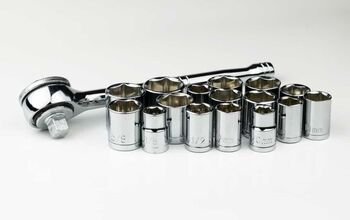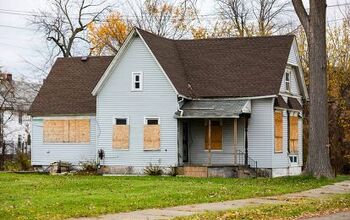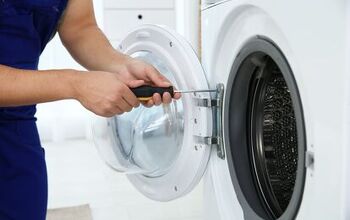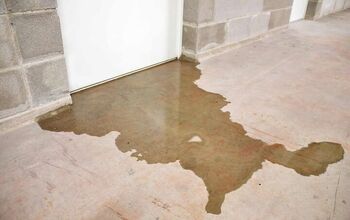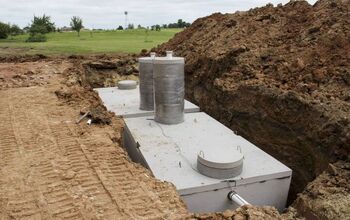Is A Termite Inspection Required For A Conventional Loan?

Getting all of your ducks in a row as a homeowner involves lots of inspections, particularly if you are seeking a conventional loan. Conventional loans sometimes have different stipulations than government-issued loans, leaving renovators and homeowners confused about what inspections are required.
One staple inspection of government loans that many wonder about is the dreaded termite inspection.
Lenders don’t always require a termite inspection for a conventional loan, but it is common. A termite inspection is required for VA and FHA loans, and conventional loans in some cases. Private lenders don’t always require a termite inspection for a loan.
Let’s get into why termite inspection is not required for a conventional loan, but sometimes, it happens anyway.
Do You Need Home Inspection Services?
Get free, zero-commitment quotes from pro contractors near you.

What is a Conventional Loan?
A conventional loan is simply a loan that is not issued by the government, but instead, a private lender. When you apply for a conventional loan, you provide financial information, such as your credit score as well as any required documents.
No matter what, lenders require that the house gets an appraisal inspection before approving the borrower for a conventional loan.
In some cases, the lender requires that you get a pest or termite inspection. However, termite inspections are not a requirement in all conventional loans, and lenders forego it all together in many cases. Things get a little bit trickier, however, when you remember that many lenders require homeowner’s insurance.
Do You Need a Termite Inspection For Homeowner’s Insurance?
In most cases, yes, passing a termite inspection is required for homeowner’s insurance. Because homeowner’s insurance is a stipulation for a conventional loan for many lenders, you may need a termite inspection done anyway.
Whether or not a termite inspection is required will typically depend on the individual insurance provider’s policy. Even if your lender doesn’t require a termite inspection for the loan, chances are that you’ll still need to get one for the sake of insurance.
That is why there is a consensus that termite inspection is required for homeowner’s insurance, even though technically, it is not. Speak with your lender to see if they require insurance and, from there, speak to the insurance company about their conditions.
Regardless, it is always in your best interest to have homeowner’s insurance, anyway. It’s important to note that the majority of insurance companies do not cover the cost of damage caused by termites. The reason for this has to due with the belief that these pests are preventable with proper maintenance and regular inspections.
Should I Get a Termite Inspection if it’s Not Required?
Even if it’s not required by either your lender or your insurance company, it is absolutely recommended to still obtain a termite inspection. This recommendation applies to both the home-buying process and general maintenance as a homeowner. In fact, you should have your home inspected for termites at least once a year, as these pests are persistently feeding and rummaging around your neighborhood.
If you neglect to have an inspection done before purchasing a home, you could end up in a grave money pit. On the other hand, if you are a homeowner who decides to opt out of regular inspections, you will be unaware of possible infestations. As a result, you’ll put yourself in serious trouble when it comes to repairs while living in the home or that must be completed before you can sell it.
Purchasing a home is a major milestone in your life. This is simply not the time to cut corners and you should always have a termite inspection done, even when it’s not required.
How Much Damage Can Termites Do?
Although termites are tiny pests, they usually congregate in large colonies and can pack a punch. It’s also very common to go years without you being aware of an infestation, all the while the termites have been silently destroying your home.
The destruction that termites can do is by no means negligible. In fact, in the United States, termites are known to cause an average of $5 billion worth of damage every year. The average cost for termite related treatments and repairs is upwards of $8,000, while extreme cases can cost more than the value of your house.
How Much Does a Termite Inspection Cost?
It costs $75-$150 for a termite inspection but varies based on location. Acquiring real estate often requires termite inspection, and services like Terminix or Belo are common choices for prospective homeowners. Termite inspections can cost as much as $350, but that is usually in the case of a preventive treatment being done at the same time.
If and when you pass and are able to buy the house, keep up with termite inspections and treatments every 1-3 years. That way, you can save yourself $40,000 or more in potential damage from the pests if they do show up.
Who Pays For a Termite Inspection?
If the termite inspection is required, the inspection is often paid for by the seller of the house. That is not always the case, however. Sometimes, buyers will ask that the passing of a termite inspection be a contingency in the sale of the house.
The seller paying for the inspection is the best-case scenario. That way, if there actually are termites, they can be treated and eradicated, along with any damage. Of course, termites are never good news, but if they can be caught early, it can save the structure of the home you are about to buy.
What Happens if the House Fails a Termite Inspection?
Either the loan will be denied entirely, or if the correct actions are taken, the loan will be granted. There is no iron-clad answer, however, if pest and appraisal inspection is a contingency of the sale of the house, it may need to be taken care of by the seller.
Even if there is nothing on paper saying that the seller must have the termites eradicate it, they are likely to foot the bill for exterminators right away.
Think about it: the worst thing a seller can do is let their house sit on the market. Add termites into the mix, and any smart seller would immediately hire a pest control service. The worst-case scenario for finding termites is coming across them near important structural points of the house, i.e. framing and beams.
With that said, catching termites early means that they can quickly be eradicated. Most lenders will allow you to have another inspection done once the termites are eradicated.
How Do Conventional Loans Compare to FHA Loans?
Generally speaking, conventional loans tend to have higher interest rates than FHA or VA loans. There are several ways that FHA loans differ from conventional loans, and conventional loans are harder to get.
| Requirement | Conventional Loan | FHA Loan |
| Credit Score | 620 + | 500-580 |
| Debt to Income Ratio | 43%-50% | 50% or under |
| Down Payment | 3% | 3.5%-10% |
| Loan Limit | $510,400 | $331,000-$765,000 |
| Appraisal Inspection | Yes | Yes |
| Termite Inspection | No | Yes |
There is more flexibility when it comes to both FHA and conventional loans. For example, some lenders may grant a conventional loan to borrowers with a credit score below 620. However, that same lender may impose a higher interest rate unless your score is 620.
Down payments for conventional loans are only as low as 3% if your credit score is 600-620. Otherwise, you may have to make a down payment closer to the 3.5%-10% range of FHA loans. If you have great credit and little debt compared to income, passing a termite inspection can land you a loan.
Related Questions
What do I do if the seller refuses to pay for a termite inspection or repair termite damage?
If you have it in writing that the sale was contingent on such inspections, you can likely back out of the deal. Failing to pay for an inspection necessary to the sale of a house can sometimes be in violation of the contract. If that is the case, you can at least get out of the deal and move onto a house with a more flexible and cooperative seller.
Can termites be detected in an appraisal inspection?
Yes, termites can be found during appraisal inspections. Particularly if there are many of them, which, unfortunately, is a bad sign. However, appraisal inspections are a staple of every conventional loan process, so if it kills two birds with one stone, that is a good thing. The sooner you catch termites, the better.
Is it difficult to be approved for a conventional loan?
It is more difficult than being approved for an FHA loan, but conventional loans are not overly strict. Conventional loans typically go to people with financial stability due to the 620 and over credit score requirements. If your credit score and income line up, passing an inspection is all that you need to qualify for a conventional loan.
Do You Need Home Inspection Services?
Get free, zero-commitment quotes from pro contractors near you.

What Did We Learn?
Technically speaking, you do not need a termite inspection for a conventional loan. However, you more than likely will need to get a termite inspection anyway due to homeowner’s insurance. Also, individual lenders may impose termite inspections, but that varies from person to person.
However, many lenders themselves only require an appraisal inspection. Either way, you’ll be glad that your future house got a termite inspection once you move in.
Related Guides

Nick Durante is a professional writer with a primary focus on home improvement. When he is not writing about home improvement or taking on projects around the house, he likes to read and create art. He is always looking towards the newest trends in home improvement.
More by Nick Durante



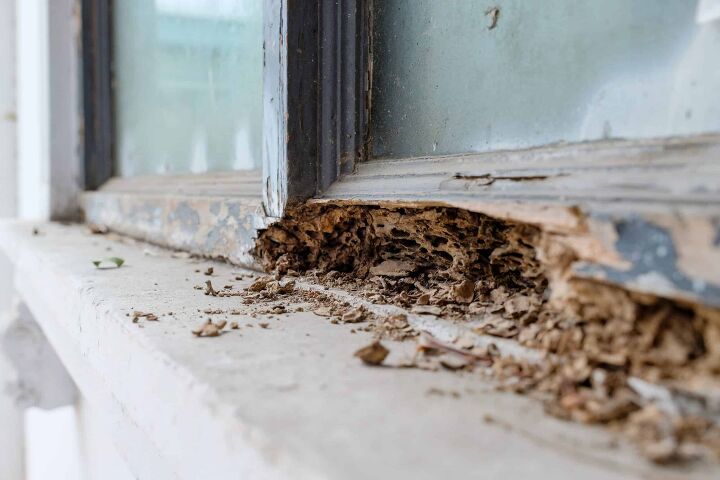







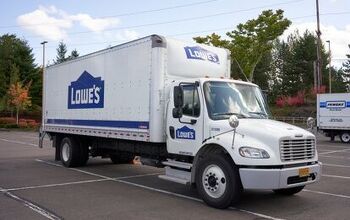

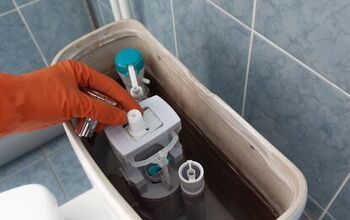
![The 10 Best Table Saws - [2022 Reviews & Buyer's Guide]](https://cdn-fastly.upgradedhome.com/media/2023/07/31/9070645/the-10-best-table-saws-2022-reviews-buyer-s-guide.jpg?size=350x220)

